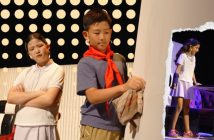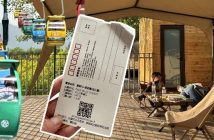Dave Liang is the producer of the The Shanghai Restoration Project, a music group that blends Chinese culture with hip-hop and electronica. His music has received coverage in The New York Times, Wall Street Journal, BBC, and NPR’s All Things Considered and he recently released “Little Dragon Tales,” a compilation of Chinese children’s songs mixed with elements of hip hop and electronic music. BeijingKids interviewed Dave via e-mail and he shared some of his experiences in the music industry and producing this compilation.
Can you tell us a little about your background – where are you from, where did you grow up, how did you get into making music?
I was born in Lawrence, Kansas but my parents moved when I was quite young to upstate NY (near Woodstock). My mother spent some time searching for the right music teacher and found a wonderful woman by the name of Barbara Pickhardt, who focused on developing my love of music (vs. just reading notes on a page). From that point on, I knew I wanted to make music.
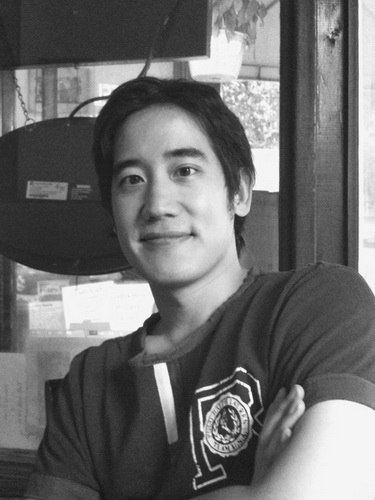
You were previously known for starting the Shanghai Restoration Project – can you explain to us what that idea behind that project is and where we can check out some of the songs?
The Shanghai Restoration Project is a blend of traditional Chinese instruments and hip-hop and electronica. The idea was to “restore” the East-West blend of 1930s Shanghai jazz (Chinese culture combined with jazz, the Western genre of the time) in a modern day context.
In 2009 you teamed up with Abigail Washburn for a project to benefit victims of the 2008 Sichuan earthquake – how was it to work with her on that experience and will you be collaborating again?
Indeed. Two years ago Abigail and I teamed up with Sichuan Quake Relief to create Afterquake, a folk electronic hybrid project to help raise awareness for the region. We had a wonderful time collaborating and became very good friends as a result. As for future collaborations, we were actually just in Nashville working on a track for a Japanese project I’ve been asked to produce.
What gave you the idea for this project?
For years, people have been asking me where to find good Chinese Children’s music. I never really came across any that I felt would be accessible to non-Chinese listeners so I just ended up making one of my own!
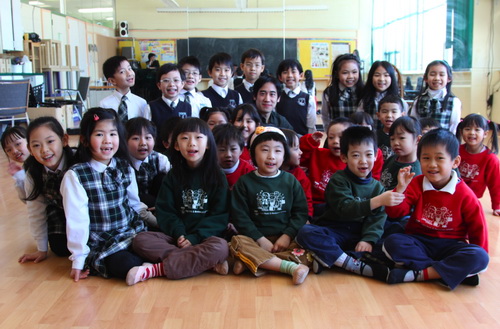
How did you go about researching the songs for the album?
Yip’s Children’s Choir Canada (my collaborators on the project) sent me a broad list of possible tunes and I asked my family and friends which ones were their favorites. Then I narrowed it down based on level of difficulty and content (e.g. I excluded love songs since I felt children wouldn’t be singing about wives and husbands!). Now I can even sing some of these tunes with my grandmother, which is awesome.
As any parent can attest, working with a room full of kids can be a harrowing experience – how did you find the kids to be? Were any of them prodigies or raw musical talents?
The kids at Yip’s Canada were extremely professional and well prepared, which I credit to their teachers and school. The children actually perform numerous concerts throughout the year so they weren’t scared of the studio. There were definitely a few that stood out due to their talent or personalities, which you can see in our preview music video and behind the scenes.
Can you describe the production process (in layman’s terms) – how did you go about producing the tracks after recording the vocal parts?
After recording vocals, I started creating specific beats (e.g. Hip-hop, Latin, electronic, etc.) for each track. I really wanted the record to include a diverse range of musical styles so I reached out to instrumentalists from various genres (classical string section, gypsy fiddler, Chinese jazz singer). Almost everything else came from one of my keyboards or drum samples.
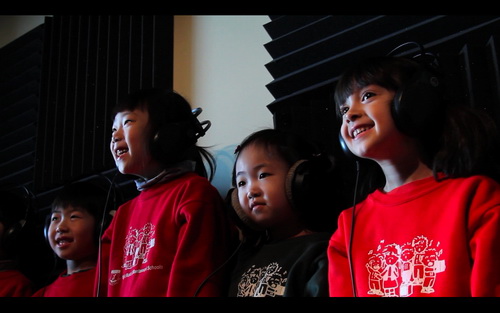
Once again you collaborated with videographer Luke Mines (Sexy Beijing) on this project to make a behind-the-scenes video. How was that experience and do you plan to do anything with the footage beyond Youtube?
Luke and I became good buddies during Afterquake and started working together again on a video diary of my production work in Tokyo. In addition to having a terrific eye, he puts a lot of emphasis on developing a story, which is key. During the documenting of Little Dragon Tales, Luke knew which parties to interview and what accompanying footage to film. Additionally, since he speaks Chinese I didn’t have to translate any content for him, which made things more efficient. As for the actual videos, at some point we’d like to make a DVD but we would definitely need more content.
Do you have any further plans to do a follow-up?
Not at the moment but you never know. Let’s see how this edition does first!
Where can readers listen, download and buy the album?
To learn more about the project, folks can visit our official website. To listen to the entire album, fans can go to NeochaEDGE where they’ve put together a great posting (Yi Ce, a member of their creative collective, did the artwork). The album is currently available on iTunes, Amazon, or Cheng & Tsui (CD distributor).
Follow Dave on Twitter, Facebook, YouTube, and his newly created Weibo account.


